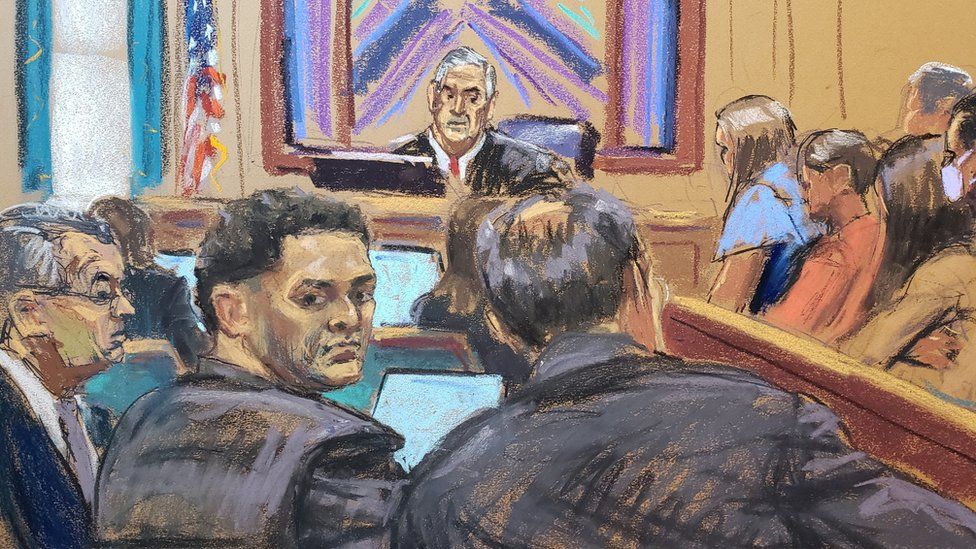-

-
-
Loading

Loading

Sam Bankman-Fried, a former cryptocurrency billionaire, is currently facing trial for allegedly committing one of the largest financial frauds in US history. The trial is taking place in New York, with opening arguments expected to be presented soon after the completion of jury selection on Tuesday. The 31-year-old entrepreneur, who previously operated one of the world's major cryptocurrency exchanges, stands accused of embezzling billions of dollars from customers and investors. However, he has vehemently denied these allegations. Bankman-Fried's rise to prominence began in 2019 when he founded FTX, a platform for trading digital currencies. He gained recognition as a cryptocurrency advocate in Washington, known for his distinctive appearance, sports endorsements, and socializing with celebrities such as NFL player Tom Brady and comedian Larry David. In 2022, as the crypto markets faltered, Bankman-Fried became a savior for struggling companies, earning himself the moniker "King of Crypto." Yet, just a few months later, he was arrested and charged with fraud when FTX collapsed into bankruptcy, leaving more than $8 billion missing. The commencement of Bankman-Fried's trial at the federal courthouse attracted significant media attention, with reporters lining up as early as 5 am to catch a glimpse of the fallen billionaire. This case holds broader implications for the cryptocurrency industry and its regulation in the United States, drawing considerable interest from legal experts. The trial is expected to shed light on the ambitious deal-making prevalent in a sector that has faced ongoing concerns about legitimacy. While the early days of cryptocurrency seemed to create sudden billionaires, the industry has been plagued by questions about its credibility. According to the Department of Justice's indictment, Bankman-Fried allegedly misused funds entrusted to FTX to engage in lavish personal spending, including purchasing properties and making substantial political donations. Additionally, he is accused of using the money to cover losses at his trading firm, Alameda Research, while deceiving investors and banks about the connection between the two companies. In media interviews, Bankman-Fried has acknowledged poor record-keeping practices but denied any intentional wrongdoing. His legal team has argued that their client followed legal advice at critical junctures. However, four of Bankman-Fried's closest business associates, including his ex-girlfriend and former Alameda CEO Caroline Ellison, have already pleaded guilty and are expected to testify against him. Legal analysts suggest the government has a strong advantage in this case, considering their extensive track record in similar prosecutions. Bankman-Fried's defense may struggle to undermine the credibility of multiple witnesses who testify against him. Bankman-Fried has been in prison awaiting trial since August when his bail was revoked after it was discovered that he had shared Ms. Ellison's private writings with a New York Times reporter. Although he has maintained a notable public presence following his downfall, it remains uncertain whether he will personally testify in his defense. In court, Bankman-Fried confirmed to Judge Lewis Kaplan that he understood his right to make that decision. Both legal teams have stated that no plea deal was discussed. Legal experts believe Bankman-Fried's best chance for acquittal lies in finding a sympathetic juror who doubts the government's ability to prove its case beyond a reasonable doubt. The outcome of this trial is likely to determine the broader ramifications of the FTX collapse, as Congress deliberates new regulations for the cryptocurrency industry and the government pursues legal battles with other firms and founders. The consequences of these developments, including potential regulatory measures, are yet to be fully understood and may significantly impact the future of the cryptocurrency sector.